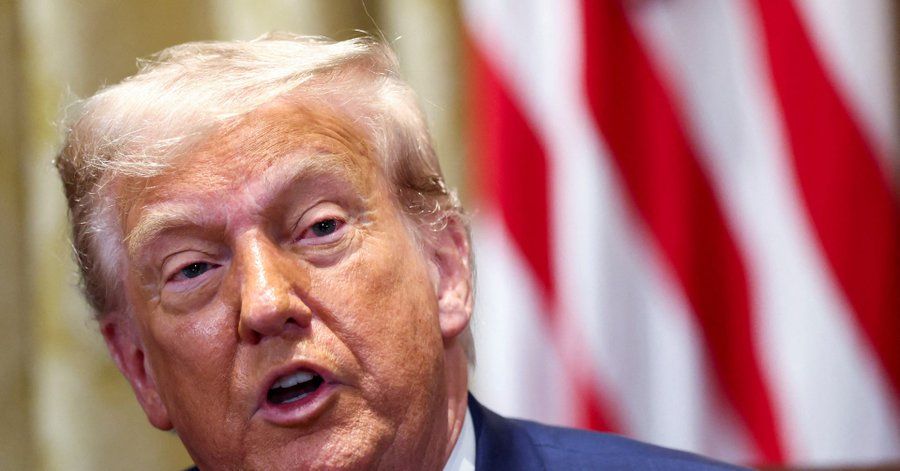Donald Trump’s tariff announcement shakes markets and triggers a 2% Bitcoin drop, fueling global uncertainty in trade and cryptocurrency.
Donald Trump’s Latest Tariff Threat Sends Ripples Through Crypto and Global Trade
In a move that has once again stirred global economic uncertainty, former U.S. President Donald Trump has announced a sweeping new wave of tariffs targeting key global trade partners. While specifics of the policy remain fluid, early details suggest significant levies on European Union goods and expanded restrictions on imports from Japan, South Korea, and parts of South America. Within hours of the announcement, Bitcoin and several other major cryptocurrencies experienced a sharp dip — with Bitcoin dropping by nearly 2%.
This news comes as global markets, still reeling from recent interest rate tensions and inflation volatility, were beginning to stabilize. Trump’s re-emergence with economic bombshells is a clear sign that the 2024 U.S. presidential race — and its consequences — is already influencing global finance in 2025.
Bitcoin: The Unexpected Collateral
Bitcoin’s reaction to the announcement was swift. Within 90 minutes of Trump’s press conference, the digital asset dropped 2%, dipping below the $58,000 mark for the first time in two weeks. Ethereum and Solana followed with 1.3% and 2.5% declines, respectively.
While cryptocurrency prices are influenced by a range of macroeconomic variables, this drop was specifically tied to investor fears that renewed U.S. protectionism could lead to global capital flight and destabilize financial flows. Crypto investors often rely on free trade optimism and global liquidity — two things Trump’s economic rhetoric directly threatens.
A Familiar Strategy, Louder This Time
During his 2016–2020 presidency, Trump weaponized tariffs against China, the EU, and Mexico in an attempt to reduce the U.S. trade deficit and revive American manufacturing. Critics at the time argued these tactics hurt U.S. consumers and sparked retaliatory tariffs, while supporters claimed they protected American workers and industry.
Now, Trump’s return to the same strategy — but on a more aggressive scale — signals a doubling down on his “America First” doctrine.
During the announcement, Trump said,
> “Other countries have looted our economy for decades. This stops now. We will protect American jobs with real tariffs and real accountability.”
The threat targets countries that, according to Trump, have “cheated the U.S. with unfair subsidies and currency manipulation.” Notably, the tariff package includes a potential 20% tax on EU-made luxury goods and a 15% blanket tariff on Japanese vehicles and electronics.
Ripple Effects Across Markets
While Bitcoin and crypto saw immediate price drops, traditional markets responded cautiously. Dow Jones Futures dipped 0.3%, Nasdaq futures hovered flat, and the S&P 500 edged slightly down. Analysts suggest many investors are waiting for concrete policy documents before making large moves.
Still, the volatility triggered by the announcement points to a deeper problem: fear of economic isolationism returning to American policy. Such shifts could threaten global trade routes, production chains, and commodity pricing — creating uncertainty across asset classes.
Business Leaders React — With Caution
Tech leaders, particularly those involved in global manufacturing, were among the first to express concern. Apple, whose product ecosystem relies heavily on Asian supply chains, is reportedly reviewing contingency plans to shift production in response to possible tariffs.
A spokesperson from Tesla, which exports parts and batteries from South Korea and Germany, commented anonymously to a financial outlet:
> “We’ve been here before. A global manufacturing company cannot afford instability every election cycle.”
Meanwhile, U.S. agricultural groups fear retaliatory tariffs could again impact American farm exports, especially soybeans and corn, as they did during the 2018 trade war with China.
Cryptocurrency Experts Weigh In
Crypto analysts believe Trump’s announcements are likely to influence investor behavior through the end of the month. According to Melinda Castillo, a senior strategist at CryptoPulse,
> “Crypto doesn’t like surprise economic shocks. Tariff talk from a figure like Trump tends to increase short-term volatility. But ironically, in the long run, crypto may benefit from distrust in traditional systems — if this keeps up.”
Indeed, some bullish investors view the dip as a buying opportunity, suggesting that the decentralized nature of crypto becomes more attractive during periods of centralized economic disruption.
Is This the Start of Trump’s Economic War 2.0?
Experts warn that this may be just the beginning. Trump’s team is reportedly drafting additional tariff proposals, including targeted tech and pharmaceutical imports. His campaign strategy seems to center around the idea that global powers have “taken advantage” of the U.S. and that only his leadership can restore economic sovereignty.
But whether voters — and businesses — are ready to go through another turbulent round of economic warfare remains to be seen. The global economic ecosystem of 2025 is far more fragile than it was in 2016. The Ukraine conflict, post-COVID recovery, inflation waves, and U.S.–China decoupling have already thinned the margins.
One misstep in tariff policy could escalate into a currency crisis or trigger a recession in some developing economiesBiden Administration Silent — For Now
Biden Administration Silent — For Now
President Joe Biden and his administration have not officially responded to Trump’s latest comments. However, White House sources indicate that trade advisors are monitoring the market reactions and may offer a counter-policy to stabilize investor fears.
Some believe the Biden campaign might use this opportunity to contrast their “stability-first” economic vision against Trump’s shock tactics, positioning themselves as the adult in the room while Trump fuels headlines.
What Happens Next?
In the coming weeks, all eyes will be on:
Federal Reserve statements about economic stability
Reactions from the EU, Japan, and South Korea
Whether Trump’s tariff proposals become part of official GOP economic policy
Meanwhile, cryptocurrency watchers and investors alike will monitor the resilience of Bitcoin and other major tokens under the pressure of global financial uncertainty.
Conclusion
Donald Trump’s tariff bombshell is more than just campaign noise — it’s a strategic chess move with real implications for trade, industry, and digital finance. While the markets are still digesting the news, one thing is certain: we’ve entered another era of economic tension, and Bitcoin was the first to feel the shock.
If history is any indication, this could either be a temporary disruption — or the beginning of a broader shift toward protectionism in American policy once again.

